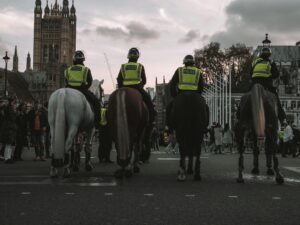It’s important that Councillors and their colleagues understand publicity restrictions during the pre-election period, also known as “purdah.”
Whilst the election campaigns are in full swing, local government must follow communication guidelines, as well as rules around the use of Council facilities, public spending and holding events. Councils must make sure that public resources are not used for political purposes and must not engage in any activity that could be perceived as supporting a particular party or candidate.
What is purdah?
Purdah is the time leading up to elections or referendums in both central and local government, when publicity restrictions apply. During purdah, Councillors, civil servants and officers need to be strict on their communications, such as marketing, press and social media.
What does the Government Code of Practice say?
The official code of practice published by the government says that local authorities must always communicate responsibly. For example, they should ensure that what they are saying is lawful, appropriate and has regard to equality and diversity. During purdah, this particular line is especially relevant:
“Publicity by local authorities should be issued with care during periods of heightened sensitivity”
– Government Code of Recommended Practice on Local Authority Publicity (2011)
What are the rules around social media and blogs?
Whether Twitter, Facebook or LinkedIn are the way to spread the word in your community, it is essential to monitor all social media channels during purdah. It is important not to share updates on topics that are politically controversial or question political impartiality, including re-shares and re-tweets.
Councillors must also not use the Council’s own social media accounts or blog platforms during this time. You might even notice some candidates have tweeted to announce they are now “entering purdah.”
Is there any guidance around imagery during purdah?
Leading up to the elections, Councils should not release, issue or distribute photographs of candidates. In addition, Councils are not permitted to supply photographs for campaigning or canvassing purposes.
Can Councils still send out press releases?
Councils can still send out media releases to the public about factual topics and issues. However these must be politically neutral and not make references to individual politicians, candidates or political groups. Members of the Council are also allowed to issue press statements and respond to the media, but must not use council resources to do so. Councils may also use specialist lead officers rather than members for reactive press releases.
Are Councils allowed to publish newsletters during the pre-election period?
Similar to press releases, the likes of weekly newsletters and community magazines can still be published, so long as they are politically neutral. Featuring Councillors, as well as their imagery, would be deemed against purdah guidelines.
What about existing campaigns with local charities and businesses?
Generally, and particularly in the run up to elections, charities and businesses should not be seen to endorse the policies of a political party or candidate. The Local Government Association state that if a campaign is already running and is non-controversial (for example, on issues like recycling or foster care) and would be a waste of public money to cancel or postpone them, then continue. However, if a campaign is likely to influence the election then they should be postponed or stopped.
With each communication method, consider the government guidelines and think carefully about how likely it is to influence the outcome of the election. Ask yourself if it would go against the key pre-election principles, and call for further advice from colleagues if you’re in doubt.
Pre-elections are a sensitive period and this article is for guidance only. Always follow the recommendations of your own Monitoring Officer, as your local circumstances may differ from Council to Council.





